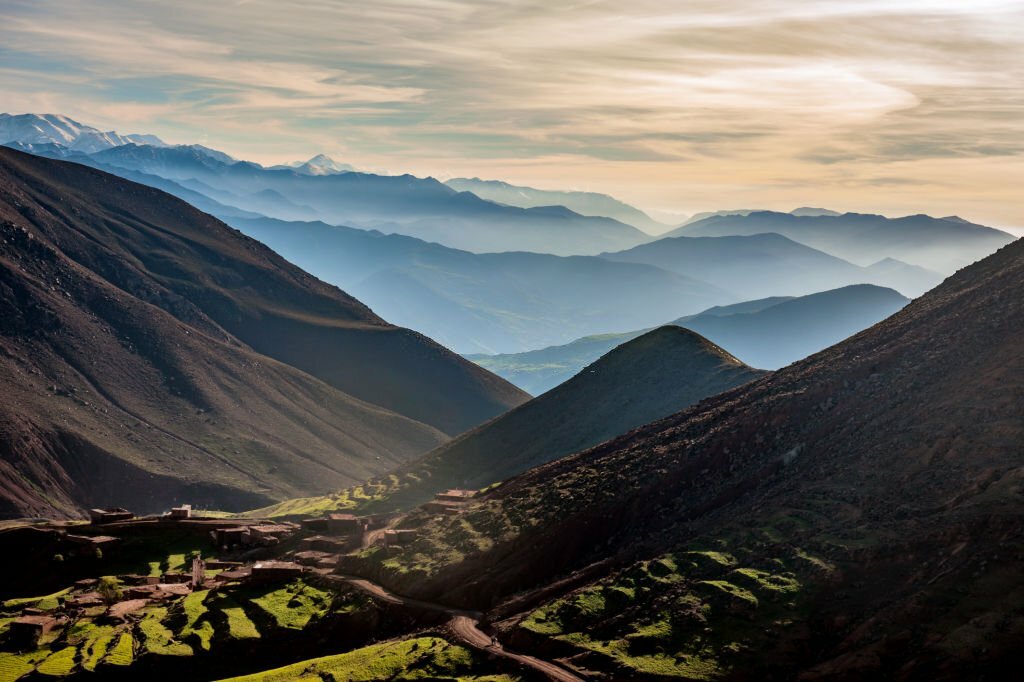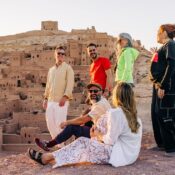Environmental Conservation and Responsible Hiking Practices in Morocco

Environmental Conservation and Responsible Hiking Practices in Morocco
Introduction
Morocco, with its diverse landscapes and natural beauty, is a treasure trove for adventure enthusiasts and nature lovers alike. However, as the allure of exploring Morocco’s scenic trails grows, so does the responsibility to protect its fragile ecosystems. This article delves into the significance of environmental conservation and the essentiality of responsible hiking practices in preserving Morocco’s natural wonders.
Morocco’s Rich Natural Diversity
Spanning from the formidable Atlas Mountains to the expansive Sahara Desert and the picturesque coastal regions bordering the Mediterranean and Atlantic, Morocco showcases a rich tapestry of ecosystems. This North African gem harbors a remarkable array of flora and fauna, with each region offering a distinct and captivating landscape, making it a haven for biodiversity enthusiasts and nature lovers alike.

Challenges in Environmental Conservation
However, these landscapes face various threats, including habitat destruction, pollution, and the adverse effects of irresponsible hiking activities. Such practices can lead to erosion, disturbance of wildlife, and degradation of natural habitats.
Responsible Hiking Practices
To mitigate these challenges, adopting Leave No Trace principles and staying on designated trails are fundamental. Minimizing human impact while exploring these pristine landscapes is key to their preservation.

Local Initiatives and Regulations
The Moroccan government collaborates with local communities to implement comprehensive measures aimed at preserving the nation’s natural landscapes. Rigorous regulations have been established to safeguard delicate ecosystems, ensuring their longevity, while simultaneously fostering sustainable tourism practices for the benefit of both the environment and the communities involved.
Promoting Sustainable Tourism
Achieving a delicate equilibrium between tourism and conservation is paramount. Fostering eco-conscious behavior among visitors and endorsing initiatives that prioritize sustainability are indispensable for ensuring the enduring preservation of our natural wonders. Striking this balance is pivotal for safeguarding biodiversity and maintaining the ecological integrity of cherished destinations.
Educational Outreach and Awareness
Promoting responsible hiking involves educating hikers on conservation’s vital role and actively involving local communities in environmental initiatives. These efforts contribute to building a sustainable culture, ensuring hikers understand and prioritize conservation while fostering a sense of environmental responsibility within the broader community.
Collaboration and Global Responsibility
International partnerships play a significant role in conservation. However, individual responsibility in preserving nature is equally essential in safeguarding these pristine environments.
Benefits of Responsible Hiking
Responsible hiking not only minimizes environmental impact but also positively contributes to the preservation of ecosystems, allowing for a sustainable future.
Case Studies of Successful Conservation Efforts
Various regions in Morocco have experienced revitalization and safeguarding through effective conservation measures, exemplifying the harmonious coexistence of tourism and preservation. This success underscores the country’s commitment to sustainable practices, demonstrating a model for responsible tourism that prioritizes the protection of cultural and natural heritage.
Technological Innovations in Conservation
Technology aids in monitoring and preserving nature. Tools and innovations assist in promoting responsible hiking and ensuring minimal disruption to the environment.
Tips for Responsible Hiking in Morocco
Equipping oneself with essentials for eco-friendly hiking and adhering to guidelines for minimizing environmental impact are imperative for responsible exploration.
The Role of Tour Operators and Guides
Tour operators and guides wield substantial influence in fostering responsible tourism by imparting vital training and advocating for conservation practices. Their pivotal role extends beyond showcasing destinations, encompassing a commitment to preserving nature. Through education and promotion, they contribute significantly to sustainable travel, fostering a heightened awareness of the environmental impact of tourism among visitors.
Measuring Success in Conservation
Evaluating the effectiveness of conservation efforts through metrics and assessing the long-term impact of responsible hiking practices help gauge success.
Conclusion
Environmental conservation and responsible hiking in Morocco are intertwined for the preservation of its breathtaking landscapes. With collective efforts and responsible practices, we can ensure these natural wonders remain unspoiled for generations to come.
FAQs
- How can individuals contribute to environmental conservation while hiking in Morocco?Individuals can minimize their impact by following Leave No Trace principles, staying on designated trails, and avoiding littering.
- Are there specific areas in Morocco known for successful conservation efforts?Yes, areas like the Atlas Mountains and certain national parks have witnessed successful conservation projects.
- What role do local communities play in preserving Morocco’s natural landscapes?Local communities often engage in conservation initiatives, offering valuable insights and working alongside authorities to protect these areas.
- How can technology aid in responsible hiking practices?Technology assists in monitoring trail impact, educating hikers, and promoting eco-friendly practices through apps and GPS systems.
- What should tourists keep in mind when selecting tour operators for hiking expeditions in Morocco?Tour operators promoting responsible practices, emphasizing conservation, and having trained guides committed to eco-friendly hiking are preferable choices.
All Categories
- Actividades en Marruecos
- Adventure
- Aventura
- blog
- blog
- Camping salvaje
- City Tours
- country tours
- Desert tours
- Estilo de vida
- Excursiones de un día a Marrakech
- Life Style
- Marrakech Day Trips
- Morocco activities
- Morocoo
- Rutas por el desierto
- Sin categorizar
- viajes por el país
- Visitas por la ciudad
- Wild Camping


